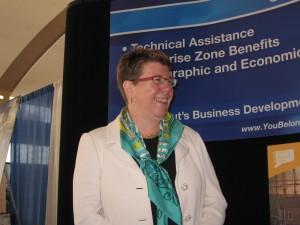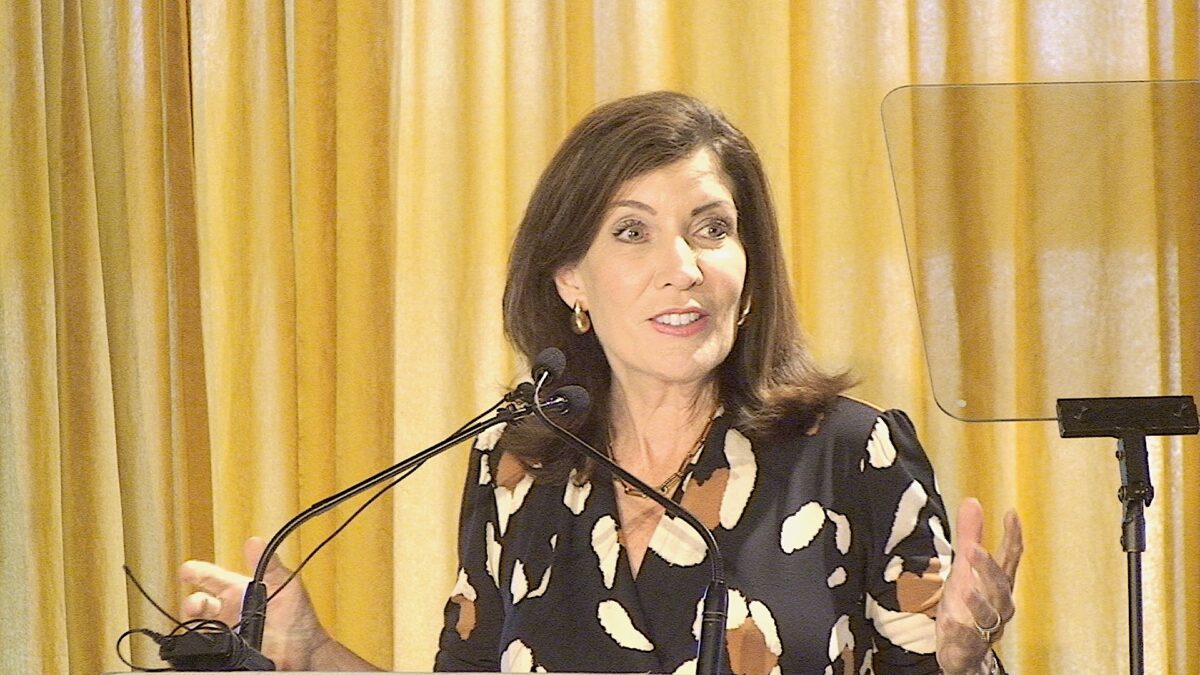The governor of New York has forced Gov. Dannel P. Malloy”™s hand to find a new economic development commissioner.
Joan McDonald was appointed Jan. 14 by Gov. Andrew Cuomo to lead the New York State Department of Transportation.
McDonald became commissioner of the Connecticut Department of Economic and Community Development in 2007, just as the state”™s economic underpinnings came unglued amid the credit crisis and resulting impact on financial and real estate markets. Malloy has overhauled the leadership of multiple state agencies, but prior to Cuomo”™s announcement had not stated whether McDonald would remain at the DECD.
“We”™re still in a very precarious situation,” McDonald told a legislative committee in an update on the state economy, just three days before Cuomo”™s announcement. “One of the things we have really focused on ”¦ in the last couple of years is being responsive to the businesses in the state.”
During McDonald”™s time in the post, the state gave the DECD oversight of other state offices, including the Connecticut Office of Culture and Tourism, and the Connecticut Innovations Inc. venture capital and renewable energy investment arm. Malloy is considering a further consolidation of economic development duties currently spread across more than 30 entities in Connecticut.
As a New York transplant just three years on the job, McDonald proved a quick study in mastering the wonky details of Connecticut”™s economy, but it was insufficient time for her to get to know all the companies and personalities ”“ which occasionally surfaced in discussions of Fairfield County players in media interviews or public forums, for instance, mispronouncing the name of prized employer Boehringer Ingelheim Pharmaceuticals Inc. this month in articulating “bore” for the first syllable rather than “bare” as most commonly used by local employees.
Malloy finds himself with a key job vacancy, even as he mulls recommendations from a policy board he convened to furnish ideas on economic development.
The 30-plus member economic development working group was led by Chandler Howard, CEO of Middletown-based Liberty Bank and former head of Connecticut Innovations; and Tony Sheridan, head of the Chamber of Commerce of Eastern Connecticut Inc.; and overseeing their efforts was Joe McGee, vice president of public policy for the Business Council of Fairfield County who led the DECD under former Gov. Lowell Weicker.
Other Fairfield County representatives on the economic development panel included:
Ӣ Chris Bruhl, president of the Business Council of Fairfield County;
Ӣ Paul Timpanelli, president of the Bridgeport Regional Business Council;
Ӣ Joe Carbone, president of the Bridgeport-based Workplace Inc.; and
Ӣ Juanita James, a former senior vice president of Stamford-based Pitney Bowes Inc.
At least a few of those names or others on the committee could end up on Malloy”™s short list of potential replacements for McDonald, each bringing a thick Rolodex of connections at the local, state or federal level; as could Mike Freimuth, Malloy”™s former economic development head in Stamford who now works for the city of New Rochelle, N.Y. And several would likely have to take a pay cut to take a job with the DECD, possibly complicating Malloy”™s search.
Malloy made no promises he would adopt the committee”™s recommendations, which included some suggestions already proposed by Malloy and his predecessor Gov. M. Jodi Rell, such as consolidating state agencies, expediting the state”™s permitting processes, and emphasizing the redevelopment of mildly contaminated brownfield properties.
The working group”™s most immediate short-term policy suggestion was for Malloy to appoint “top-level CEOs” in the panel”™s words to support job creation and economic development efforts; and in the medium term to develop an outreach plan to businesses.
And perhaps most controversially, the panel proposes as a long-term goal the establishment of tax-free zones in several parts of the state to encourage companies relocating from out of state. Those zones would carry a five-year sunset; in Fairfield County, zones might encompass Stamford for financial services and Bridgeport for precision machining.
CEOs would serve as ambassadors to support the governor”™s efforts to retain existing businesses and attract new businesses for the state, the working group reasoned, while both moves would send a signal that Connecticut is a business-friendly state.
“The quickest way to create jobs is to incentivize existing businesses to make job-generating expansions and equipment purchases,” the panel wrote. “Recruiting new businesses from out-of-state locations will first require a visible repair to the business climate and will, thereby, take longer.”
At the same time, the panel was not above touting some specific projects ”“ for instance, an expansion of a U.S. Army aviation repair facility in Groton to add as many as 125 new jobs without stating why that project should be prioritized over myriad other opportunities that offer an equal or greater economic impact.
Also requested was a designation of Southwest Connecticut as a “hedge fund capital corridor” ”“ perhaps a superfluous designation given Fairfield County”™s current status as one of the top five hedge fund clusters in the world, with the establishment of several new investment funds already under way in 2011.



















